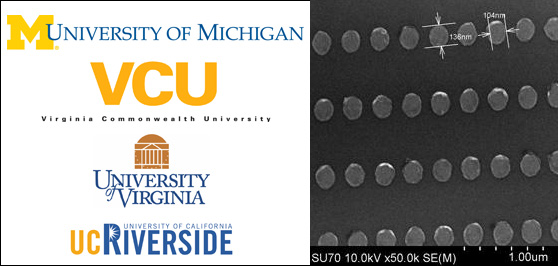Researchers funded to create processors that run without battery power

 Enlarge
Enlarge
A consortium of researchers that includes U-M Prof. Pinaki Mazumder is pursuing an effort to create energy-efficient computing devices with even more processing power packed into a single chip, while also potentially cutting out the need for battery-run computer circuits in the future. The research is funded by the National Science Foundation and the Nanoelectronics Research Initiative of the Semiconductor Research Corporation and includes researchers at Virginia Commonwealth University, the University of Virginia in Charlottesville, the University of Michigan in Ann Arbor, and the University of California at Riverside.
Driving the research is the need to allow for significant advances in microprocessor technology, including reduced power consumption, decreased device size, and increased computational power. Silicon-based microprocessor technology has essentially run up against technical barriers related to heat production and dissipation, which has capped semiconductor transistor density.
The research project will investigate a new paradigm for digital computing in which the transistors that are currently used in electronic chips are replaced by special tiny nanomagnets that can also process digital information, reducing heat dissipation by as much as one thousand to ten thousand times. This would allow designers to pack more transistors into a chip, increasing the performance of microprocessors and the products that they drive.
A potential outcome of the project is the prospect of building processors that can run without a battery because they can harvest all the energy they need from the ambient environment. This type of digital computing system could be ideal for medical devices such as processors implanted in an epileptic patient’s brain that monitor brain signals to warn of impending seizures. This processor would run by harvesting energy only from the patient’s head movements, without requiring a battery.
More information about Prof. Mazumder’s research is at http://www.eecs.umich.edu/~mazum.

 MENU
MENU 
